Paul Leonard-Morgan Interview: A Film Veteran’s First Game Score
Paul Leonard-Morgan is a new composer on the gaming scene, but not to the entertainment industry. Having previously composed for movies like Limitless and Dredd, as well as the BBC drama MI-5, Leonard-Morgan began composing for Battlefield Hardline in May 2013, when he signed on to complete the latest installment of the first-person shooter series.
In this interview, Paul Leonard-Morgan discusses the transition from film and tv to game composition, and his process in creating his first-ever game soundtrack. Revealing his creative process in composing the musical setting of Battlefield Hardline, Leonard-Morgan discusses the concepts of layered music and use of guest percussionists in his score, as well as his working relationship with EA Games and philosophies on album vs. in-game music.
Interview Credits
Interview Subject: Paul Leonard-Morgan
Interviewer: Emily McMillan
Editor: Emily McMillan, Chris Greening
Coordination: William Scot Bray, Beth Krakower
Interview Content
Emily: First off, thank you so much for sitting down with us today for Game Music Online.
Paul Leonard-Morgan: You’re very welcome – I’m actually standing up, so I hope that’s okay! [laughs]
Emily: [laughs] So, the first thing I wanted to ask you was that I think I read that Battlefield Hardline is actually the first video game you composed for.
Paul Leonard-Morgan: Indeed – don’t judge me!
Emily: [laughs] How was the experience as opposed to the tv or movies you’ve done previously?
Paul Leonard-Morgan: It was long. It was eighteen months and long. [laughs] No, it was great. You work on a movie, and it’s a few months of your life – you do the score and you get out, and that’s it. Whereas this is eighteen months. It’s kind of intensive for a month, and then you’re off for a month, and then the graphics guy sends some more scenes to you, and more levels. But yeah, I mean it’s really from working with just one director like you would on a feature film, whereas here the whole teams kind of works together to come up with a really cool soundtrack. It’s not just about me doing the score, but there’s Paul Gorman, the audio director of EA who is also giving me advice on how the music is going to fit into the game – it’s just trying to get all the audio and all the sound working together, really.
Emily: Did you have to compromise more for the game?
Paul Leonard-Morgan: It’s not so much compromise, I think. It’s almost more creative, because on a film sometimes you have to be aware of what the licensed tracks are. I mean, you’ll sit down with the director and he’ll go, “okay, we’re going to have music here, here, and here,” and you’ve got your supervisor working separately trying to work out what’s going to be the cool track for a chase scene or something. Whereas on this, we really did work hard to come up with a sound, almost like a palette, right across [the game], so we talked about old bands, new bands, and started kind of trading ideas about the guitar sounds back and forth. By the end of it, we had this really wide palette of songs, and I started writing the soundtrack, but really keeping in mind how those songs were being used, and it really shaped the direction I went down with the soundtrack.
Emily: Could you elaborate on how you created a distinct palette for the game?
Paul Leonard-Morgan: The guitars I used, to me, have got this real 70s rawness to it. I find that a lot of bands these days are really polished, and I wanted to get that really gritty rawness to it. And the thing with Hardline being set in urban L.A., with a lot of graffiti, and stuff like that all over the walls, it was just – I wanted to create something that wasn’t so much polished, but something that was really, really kind of authentic.
Emily: I also saw that you had a couple of guest artists on – you had Josh Freese from Nine Inch Nails and Greg Bissonette – was that something you had always planned on having as a part of the soundtrack?
Paul Leonard-Morgan: Around Christmas 2013, I was chatting away to Paul [Gorman] and mentioned I always wanted to have a drummer come in, because there’s only so much you can do with samples. And I love just getting musicians to muck around and then crunching it up afterwards, so it’s really a hybrid kind of thing. But when we chatted, we were just like, “look, let’s just go for the best of the best, you know?” I was aware of Josh’s work, although I didn’t realize quite how much stuff he’d done, and he came into the studio and he was just a legend, you know. I showed him the kind of vibe that we were going for, the vibe we wanted to have, and he just got the whole thing, the vibe we were going for, straightaway. So it was around that Christmas, and we just thought, well, all we can do is ask and he might say no! [laughs]
Emily: But he clearly said otherwise…
Paul Leonard-Morgan: One of the things he really loved about video games – and this is really similar to me – is the potential appeal He’s got four children, and two of them are their teenage years I think and he said they just played video games the entire time. So he said, “I play with all these bands, and they don’t give me respect, whereas if I get to play drums on one of these game soundtracks, then they’re going to give me that respect!” [laughs] And I’ve got that with my nephew, who’s a little younger, and he goes, “yeah, yeah, I can’t wait for Hardline to come out!” And I’m like, “well, I think it’s an R-rated game…” and he goes, “yeah, we’ll get it!”
Emily: [laughs] Well, you said at one point that you weren’t a big gamer – previously, anyway.
Paul Leonard-Morgan: That is right, but now I have to put my PS4 away under lock and key so I can actually get some work done in the studio! I mean, are you a big gamer, like as far as playing goes?
Emily: Me? Oh, yes, yes – I actually often like the soundtrack better than the game itself, so I’ll decide whether or not to get a game based on that, frequently.
Paul Leonard-Morgan: Okay, but that’s a rarity, because so many people will turn down the volume of a game, it seems to me, while they’re playing. They’ll go, “yeah, I’m just gonna put something on in the background,” rather than have the soundtrack.
Emily: No, if I have to do that, I’m not going to play the game. [laughs]
Paul Leonard-Morgan: You say all the right things! [laughs] But one thing I’ve found really cool is the number of people who have emailed or messaged on Facebook or whatever, just kind of sent me messages saying, “This is the first games they’ve played for ages where they just kept the soundtrack on the entire time. And for me, as someone who did not really play games before this, it was really cool to be getting such feedback from hardcore gamers… that they actually listen to this music outside of the game. So, yeah, that was really good to me.
Emily: That’s a fantastic response!
Paul Leonard-Morgan: When I was doing my research, I knew that soundtracks did not necessarily have to work by themselves, but rather work within the film, work on the tv, work in the game. But for me, when we were putting the album together, I just wanted to make it a series of songs. So what you hear is not just the version you hear in the game. But I was thinking, “How would I like to listen to this?” If I went running – I did the L.A. Marathon a couple of weeks ago – I thought, what can I listen to that would make me feel really badass? So I wanted to make it feel like something that you’d want to really listen to, and not just rip off a game.
Emily: One thing that you’ve mentioned which – to me was just fascinating – is the concept of writing in layers, so that you would have your… beer layer?
Paul Leonard-Morgan: [laughing] Well that’s my name for it, but it’s probably got a proper name somewhere!
Emily: Could you talk a little about that?
Paul Leonard-Morgan: Yeah, well, I mean so – when you’re writing a film soundtrack, it’s all obviously straight to pictures. Like a bad guy will be putting out a gun at the exact same time, or two people will kiss at the exact same moment on the film. If you play Hardline or I play Hardline,we play it at your own pace, so you’re never going to have what we call “hit points,” where for example that kiss is always going to happen at the same time, or that gunshot is always going to happen at the same time. So, the guys at EA are brilliant, and sort of showed me the way. Basically, every track that you hear has got about four layers to it, and it’s about the most layers that the memory can cope with on the console.
Emily: How did you create the layers?
Paul Leonard-Morgan: So what you’ve got is your first layer, which I call the “have a beer” layer, which is when you’re coming into the kitchen while playing the game, maybe while you’re turning it on, and that layer is about three minutes long, and we try and keep it interesting, because you don’t want to get bored of it after three minutes. But then you pick up the controller again and you suddenly turn right [in the game] and you see the cop coming to talk to you, and then that’s layer two, and it’s playing at the same time as layer one, and it’s suddenly got a lot more tense – you might have more guitars, or a bass, but that’s also got to have enough melodic content where, again, you’re not going to get bored of it, because you might be on that scene for twenty minutes if you’re really bad. [laughs] Or it could be one minute if you’re really good! I would maybe have got it in about two hours. Then, layer three, that’s where you have head locks, and it’s really, really tense, and then layer four is where we have Greg or Josh’s stuff, where maybe there’s a shootout going on. Or for example, you might be in a trailer park, just going along, and then suddenly you’re trying to go around and run in and out of trailers, and there’s a shootout going along with that.
Emily: What triggers the transition?
Paul Leonard-Morgan: Sometimes it’s a case of adding layers, and other times it’s a case of creating a new track, and going straight from one track into another one. It was brilliant going up to EA, and they were showing me how to put the music into the game. Pulling a gun, for instance, is a trigger point where the music goes on to a different part of the track. It’s amazing seeing how they put my music into the game. And then when you’re writing the music, it’s just a completely different way of getting your head around it. Does that make any sense whatsoever? [laughs]
Emily: Yeah, absolutely! It makes a lot of sense. And that concept of layers vs new tracks is something that I haven’t thought about in terms of other soundtracks.
Paul Leonard-Morgan: Yeah, when I looked at games I went to games like Grand Theft Auto, and played it over, over and over [laughing]. It’s a really fantastic soundtrack, but it doesn’t have the layers we ended up using. With this, we really wanted to try and create a soundtrack with a diversity to it that made you really feel like you were watching a film or watching a tv series, so I think they’re just different ways of writing.
Emily: If I were listening to the album, then, are the layers occurring simultaneously on the same tracks, or do the introductions of new layers start new tracks on the album?
Paul Leonard-Morgan: Now that shows you’ve clearly got it! [laughs] Well, take for example, “Zipline”; now “Zipline” is made up of forty or fifty different parts in it, which you then go and mix into the track. So then after you mix the parts, you go back and figure out which parts go with which layers, because obviously they’re not all playing at the same time. And then, after all of that, we say, “We’re going to create the soundtrack album, and it’s going to take forever to go into each track and sort of extend it.” So what we did was take these four layers and then create the tracks out of those layers. So it’s not just a case of three-minute tracks on loops, but we wanted to be creative and be able to create score so that you would be able to listen to them like a normal track, but there would maybe be layer one, and then layer two is when we ramp it up a bit, and just take it from there. It sounded good to me!
Emily: I did notice that a lot of the tracks started off really simple, just a bass line, really basic percussive movements or something. I wasn’t sure if that was meant to continue onto the next track, because each track did build up individually.
Paul Leonard-Morgan: Yeah, so that’s just me mucking around with the layers really. When we released music a little while ago, I got a lot of messages like “I love the soundtrack but you suck because this track’s only one and a half minutes long, and it ended just as I was getting into it!” I thought, rather than let people hang, I decided to try and make a long track that would make people want to listen to it. So that, for me, was about creating tracks with minimal stuff and then making them bigger and with more layers. But again, it’s about the tracks going into each other. The tracks aren’t in any particular order, in terms of gameplay, which I think confuses people, but I never like to do soundtrack albums like that. For me, I kind of like to do it as an album; if I’m listening to an album like the Foo Fighters or something, I want to listen to it as a regular album, with its highs and lows – you know what I mean, about the track order?
Emily: I think this might be the first album I’ve looked at with this site that’s organized like this, so separate from chronological order of the game. But I love that idea that, if you have the album, it’s because you want to listen to it separately from the game.
Paul Leonard-Morgan: Yeah, totally, and I think the funny thing is that about six months ago, I got a bunch of tweets and stuff, and a guy goes, “I see you’re doing Battlefield: Hardline,” and I wasn’t allowed to say anything, so I was like, “What gave you that idea?” And he said, “Well, let me put it this way – some guys ripped the music off the beta, and it totally sounds like you.” And I was like, “Oh, great, I’ve only got one style…” [laughing]
Emily: Actually, I wanted to ask you about that a little bit. I listened to some of your other scores – Dredd, Limitless – and you have different sounds in each of them. Whereas frequently, I’ll start to hear some trademark technique in composers across albums, you seem to take a different approach for each score, whether it’s orchestral, electronic, or guitar-based. Is that intentional, or do you just approach each album with a kind of clean slate, or are you taking stuff away from each project?
Paul Leonard-Morgan: I think the intention is that you always start with a blank slate for me. Because, well, that’s the wonderful thing about music, isn’t it? With the the total passion you get, it doesn’t matter what instruments you’re in front of. I’m comfy in front of a hundred-piece orchestra (as I was trained classically), then I started producing bands, and then all of a sudden I ended up doing this crossover thing, where I’m working with orchestra and bands, with electronics mixed in. So for me, I try and approach each one with a blank slate; I think the difficulty sometimes is that you’re going from one project to the next, to the next – and sometimes you’ve got to try and clear your head somehow, and you’ve still got thoughts from what you were doing on your previous job fresh in your head.
Emily: Well, that sort of explains why you switch from different kinds of soundtracks.
Paul Leonard-Morgan: Yeah, absolutely! As far as Limitless and Dredd goes, and all that, I think that naturally everyone has their sound, but that doesn’t mean that everything sounds the same. You have little things that just kind of signpost for other people – “Oh, that’s Paul Leonard-Morgan,” or whoever. You’ve got your little things that give you your sound, that you add to your palette. So yeah, I think it gives people a starting point when they’re looking at your work, but then it’s up to me as a soundtrack composer to kind of take what they say and make something brand-new and different and fun out of it. Otherwise, it’d just be the same thing, day in and day out.
Emily: Does this reflect your approach on Hardline?
Paul Leonard-Morgan: I think with, when EA heard Limitless, when they heard Dredd, they liked the sounds and vibes. But for me anyway, I found out quite quickly that [Hardline] wasn’t this electronic soundtrack along the same lines. We were talking about how it was going to be urban, how it was going to be raw, and I just said straight off, “look, I get where you’re coming from with this, and yes there is going to be some synth in this, but it’s going to be much more guitar-oriented, much more of a band vibe”. If you have a job like this, you can take the skills you learn from one project and take them on to the next. You go into a score, and you’re thinking, “Yeah, I love the way I did that orchestra, or crunched up those sounds for Limitless,” and people are wondering whether it was an orchestra or not – it was totally distorted, and reversed – so then I use the same technique in Dredd but I used the technique on a drumkit instead of an orchestra. So suddenly I’m taking these beats that the drum is playing, but totally crunch them up to make a unique sound. You always take on different things from the stuff that you do and take it on to your next project.
Emily: Do you work on multiple projects simultaneously?
Paul Leonard-Morgan: For Hardline I was actually working on it at the same time as this project called Walking With Dinosaurs, although I don’t think any of that orchestral stuff crept into Hardline. Walking with Dinosaurs is about a 95-piece orchestra and random percussion, and then suddenly you’re in this really dark, shoot-em-up kind of thing. It certainly keeps things interesting.
Emily: What was it like walking into a series as established as Battlefield?
Paul Leonard-Morgan: I think it’s funny – people had such expectations with the Battlefield brand. One of the funniest things – people had this total love/hate thing with the main theme of Battlefield, and it was one of the hardest things to do. It goes, you know, dah-dah dah, dah-dah dah – which I think was introduced in one of the really early Battlefield games. And then they did this great, great electronic remix in Battlefield 3, I believe, which was people trying to do different variations of it. And that flipping theme took about two months to get to a stage where I was happy with it, and where everyone else was happy with it… to try and take those little risks, and then to try and get it into the game. So some people go, “Oh, they got rid of the theme,” and others realize and go, “Well no, they just got another version of it, but it’s much more subtle” – so that’s my little musical easter egg. I’ve inserted the theme at various points throughout the game, but I guarantee some people will never find it.
Emily: [laughs] Some people are going to take up that challenge, then!
Paul Leonard-Morgan: I know, I know, they will! And it’s so fun because some themes I did were made out of bullets – I sampled up some bullets, gunfire, and just made a loop out of it, and then wrapped that up in more layers, so it’s kind of subtle. But I liked doing that, I like doing those little easter eggs in my score, so that occasionally people find it and go, “Is that what I think it is? Did you sample a knife?” So it’s fun for me, it adds to it, and it’s nice when people have got it, but you don’t really expect them to because it’s so subtle. Although we’ll soon find out!
Emily: Do you have anything else you would like to say to readers and fans?
Paul Leonard-Morgan: Don’t hate me if it’s not what you like! [laughing]
Emily: Yep! [laughs] Thank you so much again for this. I really enjoyed this conversation!
Paul Leonard-Morgan: Ah, you’re very welcome!
Posted on April 17, 2015 by Emily McMillan. Last modified on April 21, 2015.

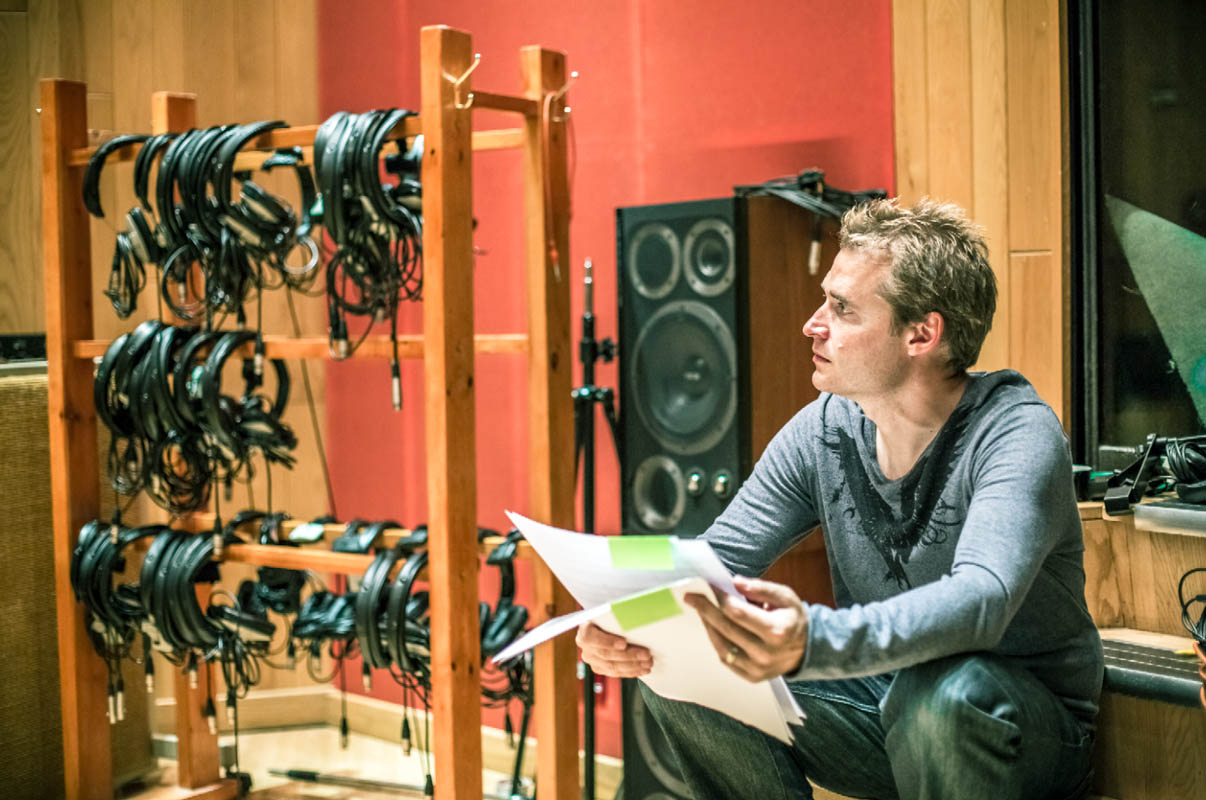
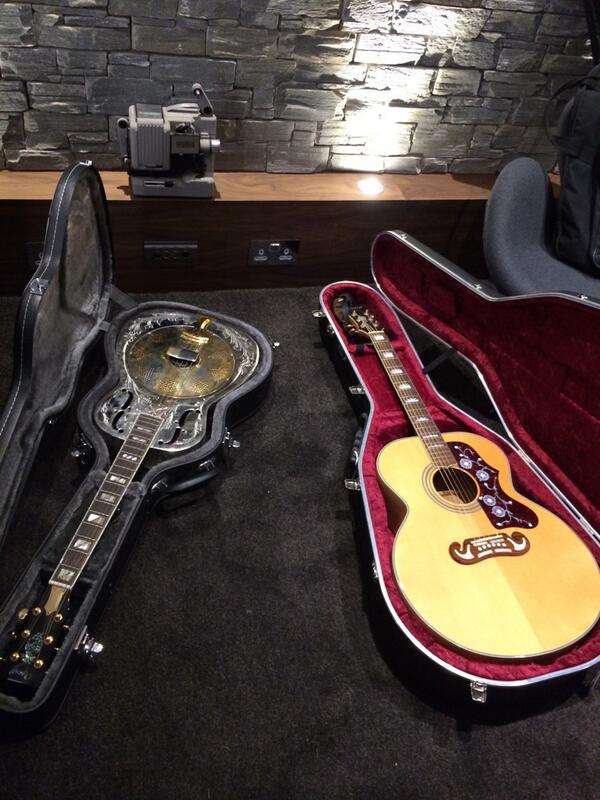
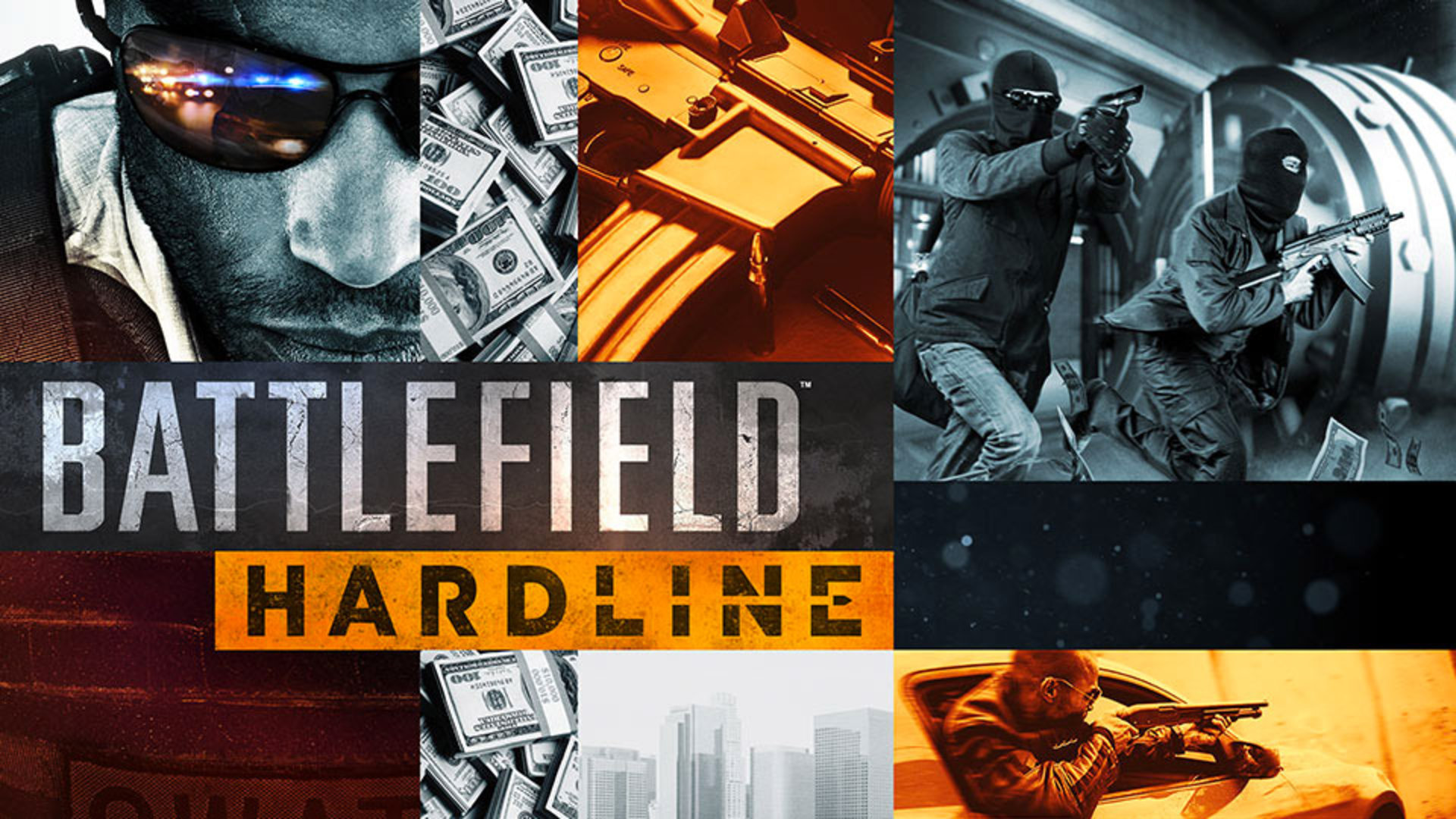
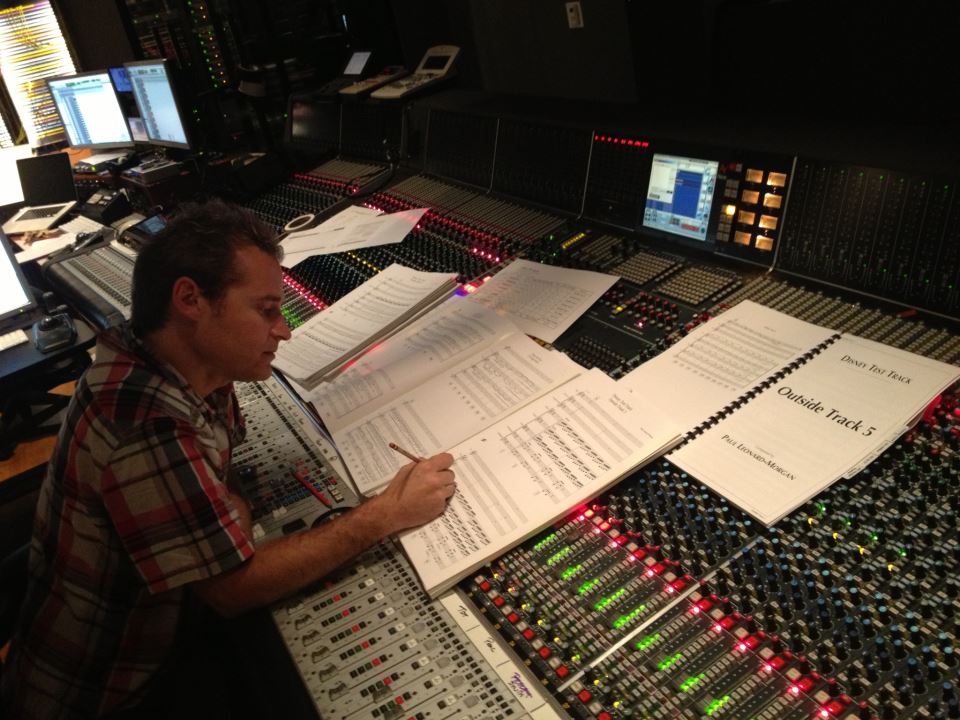
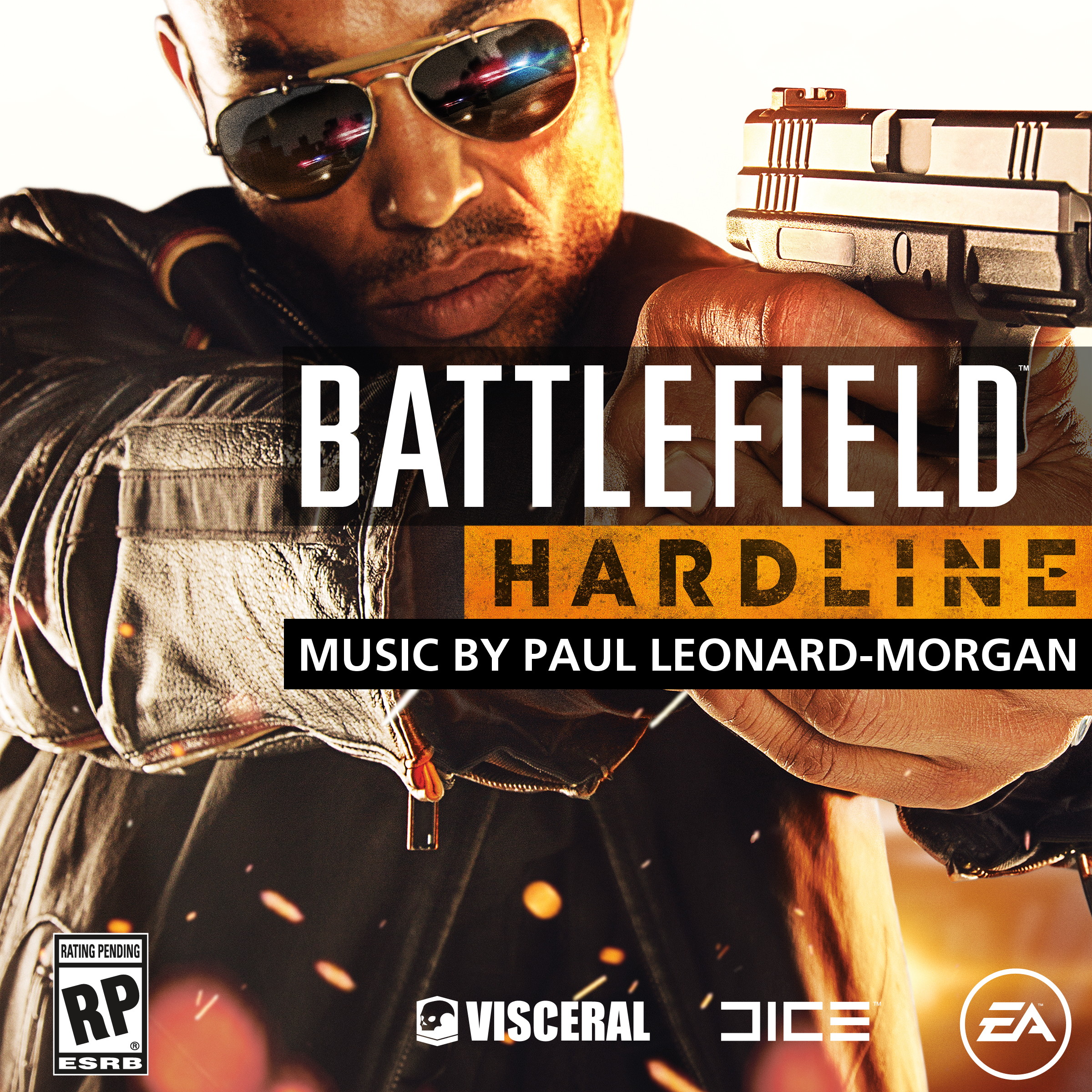

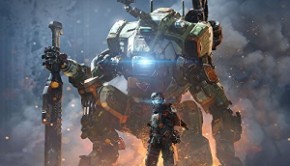
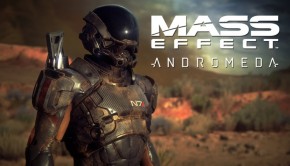











What a great interview! Very informative and amusing. Good job.